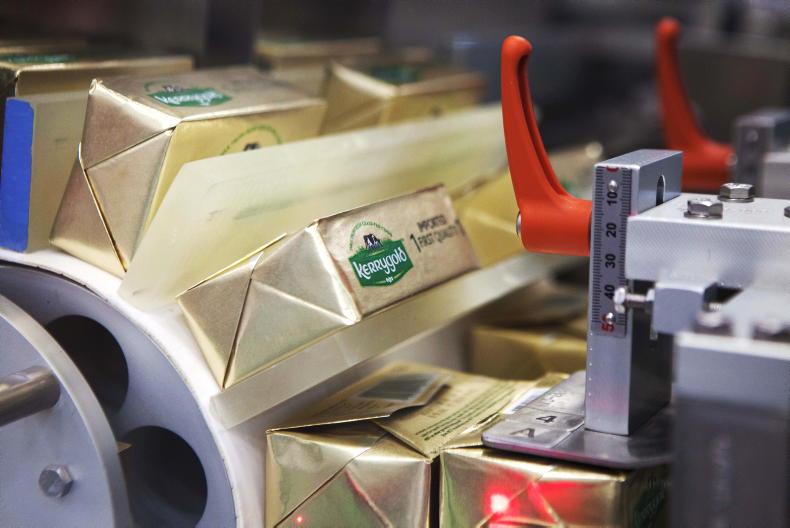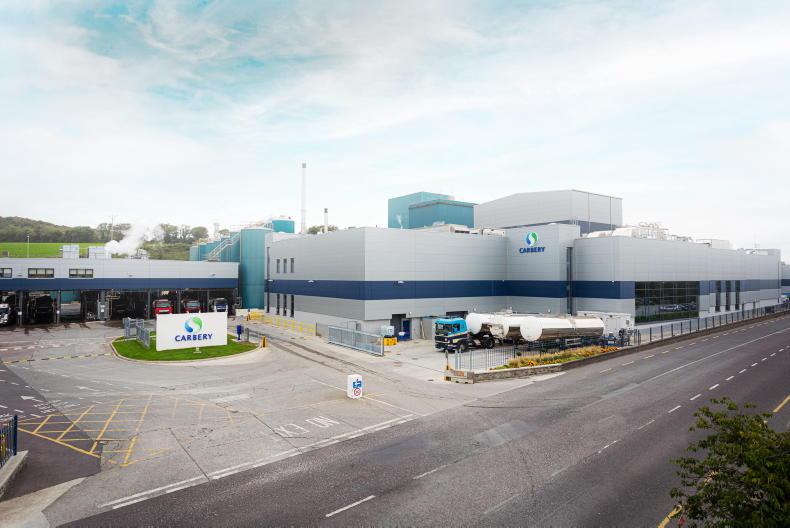Kerry Group chief executive Edmond Scanlon has said his outlook for milk prices in 2019 is that they will be similar to last year.
Speaking to the Irish Farmers Journal after the company announced record sales of €6.6bn and trading profits of €805m, Scanlon said that dairy markets were in a similar place to last year.
“I would say my outlook for dairy markets right now is neutral in that I think milk prices should be around the same as last year. It’s difficult to predict at this early stage of the year,” said Scanlon.
It’s a positive development for dairy markets that these stocks have been cleared but I would have some concern as to where all the product is gone
The Kerry boss added that over 15% of the company’s milk pool is now in some form of fixed-price contract, which are designed to limit the volatility of dairy markets on farmers. However, Scanlon warned that intervention skimmed milk powder (SMP) could still be working its way through supply chains, which could affect demand this year.
“There’s been a lot of commentary around the clearance of the European Commission’s intervention stocks of SMP.
"It’s a positive development for dairy markets that these stocks have been cleared but I would have some concern as to where all the product is gone.
“I don’t think it has all been consumed yet and much of it could still be sitting in the supply chain somewhere in private hands,” he said.
Away from dairy markets, Scanlon said the company had grave concerns about what a no-deal Brexit could do to consumer demand in the UK.
“The impact of WTO tariffs on food imports to the UK would be extreme,” said Scanlon.
“Straight off the bat we would be passing those tariffs onto our customers in the UK just like we do in any other part of the world.
"The issue is what happens when our customers pass on those tariffs to the end consumer.
“It will be demand from UK consumers that’s negatively impacted because the UK consumer shifts very quickly. That’s by far our greatest concern from a no-deal Brexit.”
Kerry has spent up to €30m realigning the structure of its UK business ahead of Brexit in a bid to mitigate the impact.
The company has divided its consumer foods business in the UK down the middle into two units – private label and branded.
According to Scanlon, the new structure is to make the business fit for purpose as the private label side of things needed to be tighter, particularly when faced with the weakness in sterling in the last three years.
Kerry Group has significant exposure to the UK market, with almost a quarter of its €6.6bn revenues in 2018 generated in the UK.
This is mainly down to its consumer foods division which had sales of €1.3bn in 2018 and is heavily weighted to the UK market.
Scanlon added that Kerry Group was reviewing its entire footprint in the UK (25 manufacturing facilities) because of Brexit and the uncertainty that is creeping into the UK market. Six months ago consumer demand was still robust in the UK, said Scanlon.
However, in the final months of 2018 the company has seen a slowdown in demand as Brexit uncertainty has grown.










SHARING OPTIONS